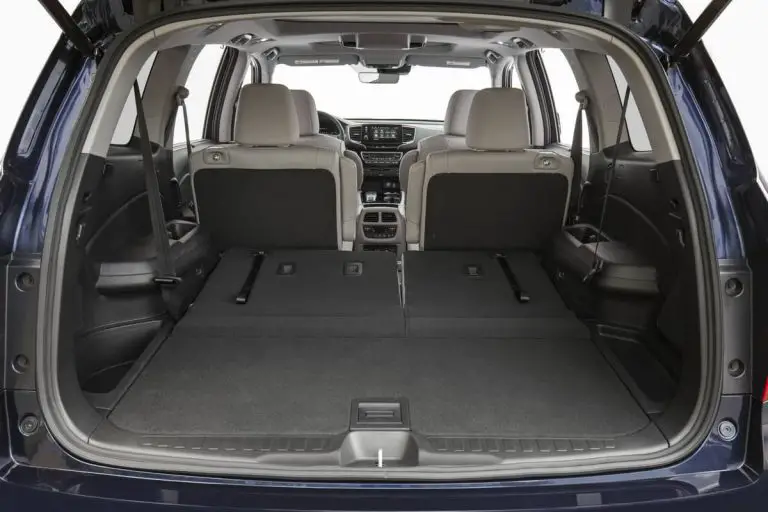If your car’s ABS light is on, you may have a sticking caliper. A sticking caliper can cause the ABS light to come on because it is not releasing properly. The ABS system relies on the calipers to release when it detects a wheel skidding so that it can apply the brakes to that wheel only.
If the caliper is sticking, the ABS system will not be able to function properly.
If you have a sticking caliper, it can cause your ABS light to come on. The reason for this is that the caliper may not be releasing properly, which can cause the brakes to lock up. If this happens, it can trigger the ABS system to kick in and try to prevent the brakes from locking up.
BMW 1 Series Brake Caliper Sticking – Caused By ABS Fault.
What are the Symptoms of a Sticking Brake Caliper?
If your brake caliper is sticking, you may notice that your car drifts to one side when you brake, or that your brakes feel “grabby.” You may also hear a squealing noise when you brake. If you suspect that your brake caliper is sticking, have it inspected by a qualified mechanic as soon as possible.
What Can Cause ABS Light to Come On?
When your car’s ABS system kicks in, it can feel like you’ve hit a patch of ice. The pedal will pulsate under your foot and the steering wheel may shake. But don’t worry – this is normal!
Your car is just trying to help you stop safely. There are a few different reasons why your ABS light might come on. It could be something as simple as a loose wire or low brake fluid levels.
Or, there could be an issue with one of the sensors in the system. If the light comes on and stays on, it’s important to get your car checked out by a mechanic as soon as possible. ABS stands for the anti-lock braking system.
This system helps you maintain control of your car during emergency braking situations by preventing the wheels from locking up. When the ABS system senses that a wheel is about to lock up, it will automatically pump the brakes faster than you could do yourself. This gives you better control of the car so you can avoid skidding or sliding on wet roads.
If your ABS light comes on while you’re driving, it means that there’s an issue with the system and it’s not working properly. You should still be able to brake normally, but without the extra help from the ABS system, it’s more important than ever to drive carefully and pay attention to road conditions. If you have any questions about what caused your ABS light to come on or how to fix it, be sure to ask your mechanic for help!
Will ABS Cause Brakes to Stick?
ABS, or anti-lock brake systems, are a safety feature in many modern vehicles. When ABS is engaged, it prevents the brakes from locking up. This can be extremely helpful in emergency situations when you need to brake quickly and don’t want to risk skidding or losing control of your vehicle.
However, some drivers have reported that their brakes seem to “stick” after they’ve been using ABS. There are a few possible explanations for this phenomenon. First, it’s important to understand how ABS works.
When you press the brake pedal with ABS engaged, the system rapidly pumps the brakes multiple times per second. This helps to prevent the wheels from locking up and losing traction. You may feel a pulsing sensation in the pedal as this happens.
Some drivers mistakenly believe that this pulsing sensation means that the brakes are not working properly. In reality, it’s just a normal part of how ABS functions. The pulsing should stop once you release the brake pedal and allow the vehicle to slow down naturally.
Another possibility is that your Brake Pressure Modulator Valve (BPMV) is sticking open slightly when you release the brake pedal after using ABS. This can cause your brakes to feel “spongy” or unresponsive for a short time afterward.
Can Brake Pads Affect ABS Light On?
ABS stands for the anti-lock braking system. This system is designed to keep your wheels from locking up when you brake hard. If your ABS light comes on, it means that there is a problem with this system.
Brake pads can affect the ABS system in two ways. First, if the pads are worn down too far, they can trigger the ABS sensor. Second, if the pads are not installed correctly, they can cause the sensor to malfunction.

Credit: www.youtube.com
Can ABS Cause Brakes to Drag
If you’re noticing that your brakes are dragging, it’s possible that the issue could be related to your ABS. When ABS gets too hot, it can cause the brake pads to stick to the rotor. This can lead to decreased braking power and extended stopping distances.
If you think this might be the case, it’s important to have your vehicle inspected by a qualified mechanic as soon as possible.
Conclusion
If your car’s ABS light is on, it could be because of a sticking caliper. When the caliper sticks, it doesn’t release the brake pad properly, which can cause the pads to wear down unevenly. This can trigger the ABS light to come on as a warning sign.
If you’re experiencing this problem, take your car to a mechanic so they can fix it.





